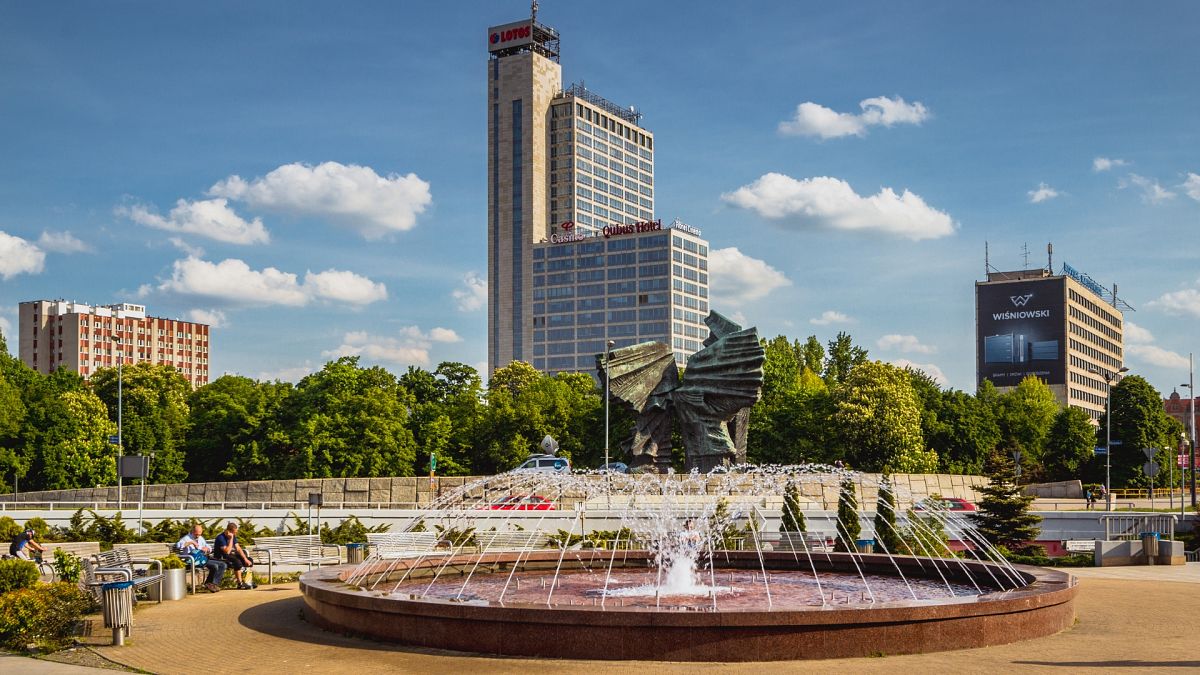Katowice hopes to serve as an example to other industrial cities wanting to move away from fossil fuels.
Katowice, once the heartland of Poland’s huge coal industry, has joined a group pushing to accelerate the phase-out of coal power in favour of green energy.
It is the country’s first major city to join the Powering Past Coal Alliance (PPCA) and Katowice hopes it can serve as an example for others wanting to move away from fossil fuels.
By joining the alliance, the city has committed to phase out coal-fired power generation. To ensure this transition is just, it will need the cooperation of both local government and local businesses.
“Katowice can be a beacon for other industrial cities navigating similar challenges,” says Patryk Białas, city councillor, chairman of Climate and Environment Commission and prominent climate activist.
“By joining the PPCA, Katowice embraces a leadership role on the international stage and sends a powerful message: transformation is possible, even for cities built on coal. Through determination, collaboration, and innovation, Katowice is proving that sustainable development is not just an aspiration but an achievable reality.”
Can Katowice be a model for other cities?
There have already been several major milestones in Katowice’s green transition.
After it hosted the COP24 UN climate summit in 2018, in 2023 the city committed to reducing CO2 emissions by 40 per cent compared to 1990, prioritising investments in green infrastructure, and promoting renewable energy and energy efficiency.
“Katowice can be a model for other cities pursuing a sustainable transformation. The gradual departure from heavy industry did not bring high social costs in our city,” says Marcin Krupa, Mayor of Katowice City.
It hasn’t all been smooth sailing for the city. At first, unemployment was a major challenge. When the mines started closing in the 1990s, around 70 per cent of local jobs were lost. This led to an increase in homelessness and economic decline.
“Today, the unemployment rate in Katowice is one of the lowest in the country and stands at 1 per cent,” Krupa explains.
The city is still home to two mines and one coal power plant but Katowice has diversified its economy to focus instead on services, technology and culture. It replaced mining with new technology, the entertainment industry and culture.
An increasing number of jobs in sectors like gaming and IT have kept the market strong and attractive to young people.
Three major institutions – the city’s conference centre, the Silesian Museum and the National Polish Radio Symphony Orchestra buildings – now sit within walking distance of each other on the ground of a former coal mine.
What is the Powering Past Coal Alliance?
The PCCA is an international coalition of national and subnational governments, businesses and organisations working to advance the transition from unabated coal power generation to clean energy.
“By joining the alliance, we will be able to share our experience with other cities and regions dependent on coal around the world. But it is also a chance for us to learn about the best environmentally friendly solutions,” Krupa says.
Katowice is the sixth Polish member of the alliance after Wielkopolska, Eastern Wielkopolska, Koszalin, Wałbrzych and the utility company ZE PAK.
How Poland is moving away from coal
Poland is the second-largest coal-mining country in Europe after Germany and the ninth-largest coal producer in the world. It isn’t a major exporter, instead consuming much of the fuel itself with coal providing 36 per cent of its energy supply in 2023.
The country is making progress on renewable energy aiming for it to make up 53 per cent of its electricity supply by 2030. It has one of the fastest-growing solar markets in the European Union and has also seen a strong uptake of heat pumps. It has also set its sights on massively increasing offshore wind capacity before the end of the decade.
However, according to the International Energy Agency, stronger efforts are needed across all sectors to accelerate Poland’s energy transition.

